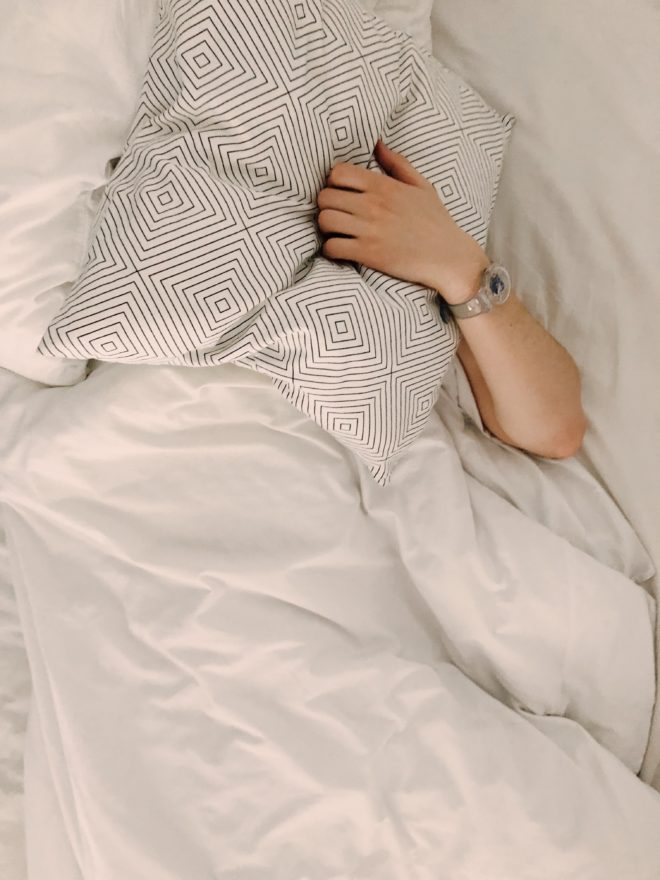
Clinic News
At last, Erin joins the team after a 6 month wait to secure her visa. We hope you will join us in welcoming her. She will be working Monday to Thursday and one in three Saturdays. Her diary is open for bookings online and through reception. Alex gets the chance to resume her normal hours but will be in the clinic on Wednesdays to mentor Erin and Luke with their PRTS (post-registration training) so don't be surprised if she observes your session.
The team had a great time bowling followed by a lovely meal at Fothergills in town - an interesting tactic of Luke's to pretend he had hurt his back playing hockey earlier in the day only to go and scoop the best scores of the night. There was a close second by Phil Newton, Julie's husband. See some of the photographs below. Note the writing on the blackboard next to Luke.
Did you Save the Date?? Saturday April 1st 2023 we will be hosting our 30th Anniversary party. Entry and prize draw tickets will be on sale in reception soon. There will be a massive prize draw, activities for the day to enjoy and of course cake and bubbles.
Keep a look out for the posters around the clinic for when tickets are released.
The recipe book is in its final throws of being edited and we hope to have to finished copies available for purchase very soon.
Fancy £10 off your next massage with Jenny Flowers?? Look out for the vouchers around the clinic.
This month we focus on brain function and what we can do to help improve it and the many benefits of aloe vera.
![]()
Therapist Thoughts
I have just completed my first month back after maternity leave and my theme that I have been discussing is going “Back to Basics”
No matter your injury or issue it is important to go back to basics when starting your rehabilitation or fitness journey to get back to your daily activities or achieving those all important goals.
What do I mean by this?
I like to test to see whether you can do basic movement patterns. Whether it be stationary or dynamic and core related. You need to be able to perform the simplest of movements effectively and correctly to be able to train your body to perform to the ability that you want.
An example of this is…
A beginners core exercise I give out to start waking up those lower back and stomach muscles is the “Dead Bug”
This is where you lay on your back with your hips and shoulders raised at 90degrees and move opposite arm to leg whilst engaging your abdominal muscles.
However, I strip that back a little first and ask you to lay in the Dead Bug position and engage your core muscles by pushing your lower back into the floor, hold for a few seconds and then repeat.
I want you to know how to engage those muscles before starting the basic movement pattern.
The more we focus on our core the more we can put trust in our backs.
Let’s get Back to Basics

Do You Feel Dizzy For No Reason?
Most children get a real thrill out of making themselves dizzy. They’ll spin round and round as fast as possible and then collapse in a heap of laughter and giggles. However, when someone suddenly becomes dizzy for no apparent reason, it can be a very frightening and debilitating experience.
Dizziness is the third most common complaint in general practice, yet most people don’t know why it happens. Our eyes, ears and nerve endings in our joints all combine to send signals to the brain telling us where our body is in space. If these signals are interrupted or the wrong signals are sent, then we can get dizzy. There are a number of different reasons why we can feel dizzy. Some of these include more serious trauma to the head and/or neck.
People are sometimes confused between dizziness and vertigo. Dizziness can be described as a feeling of light-headedness, whereas with vertigo, you either feel as if the room is spinning or you yourself are spinning. By the age of 70, about 30 per cent of people have experienced vertigo it at least once. If you think that you have experienced vertigo, then it is best to seek medical advice.

Sleep loss – causes, consequences and treatment
Bad sleep is a really unpleasant condition that can affect people of all different ages. It is characterised by having difficulty falling asleep or waking up several times throughout the night.
How much sleep do I actually need?
Most people experience difficulty sleeping at some point in their lives. Some people may feel refreshed after only six or seven hours of sleep. However, most adults need about eight hours of sleep every night to feel rested.
The important thing is to find out how much sleep you need and then try to achieve that amount on a consistent basis. As a general rule, if you wake up tired and spend the day longing for a chance to have a nap, it’s likely that you’re not getting enough sleep.
What causes sleeping difficulties?
Causes of sleeplessness may include ageing, excessive stimulation before bedtime (such as watching television, playing video games, or exercising), consuming too much caffeine, noise disturbances, an uncomfortable bedroom, or a feeling of excitement or anxiety. Sleeping too much during the day, lack of exposure to sunlight, frequent urination, physical pain, and some prescription medications can also lead to difficulty falling or staying asleep. For many people, stress, worry, depression, or work schedules may also affect their sleep. For others, sleep issues are due to a sleep disorder such as insomnia, sleep apnea, and restless leg syndrome.
What happens if I don’t sleep?
One random night without sleep can make you feel tired and irritable the next day, but it won’t hurt your health. After a few sleepless nights, the mental effects will become more serious. Your brain will cloud, making it difficult to concentrate and make decisions. You will begin to feel down and may fall asleep during the day. The risk of injury and accident at home, at work and on the road might also increase. If continued, lack of sleep can affect your overall health and make you prone to serious medical conditions such as obesity, heart disease, high blood pressure, and diabetes.
How to beat insomnia?
1. Regular sleep hours
Going to bed and getting up at roughly the same time every day will programme your body to sleep better.
2. Comfortable bed and restful sleeping environment
Your bedroom should be a relaxing environment. Experts claim there’s a strong association in people’s minds between sleep and the bedroom.
However, certain things weaken that association, such as TVs and other electronic gadgets, light, noise, or an uncomfortable mattress. Your bedroom ideally needs to be dark, quiet, tidy and kept at a temperature between 18C and 24C.
3. Exercise regularly
Regular exercise can improve sleep quality and duration. However, exercising immediately before bedtime can have a stimulant effect on the body and should be avoided. Try to finish exercising at least three hours before you plan to retire for the night.
4. Cut down on caffeine
Cut down on caffeine in tea, coffee, energy drinks or colas, especially in the evening. Caffeine interferes with the process of falling asleep, and also prevents deep sleep. Instead, have a warm, milky drink or herbal tea.
5. Eliminate alcohol and nicotine
Nicotine is a stimulant. People who smoke take longer to fall asleep, wake up more frequently, and often have more disrupted sleep. Regular drinking can affect the quality of your sleep making you feel tired and sluggish. This is because drinking disrupts your sleep cycle.
6. Try to relax before going to bed
The goal is to avoid making plans for the next day while trying to fall asleep. For example, try making a work-related task list for the following day before leaving work to avoid taking your work home with you. That way when you get home, you can properly rest in a warm bath, listen to quiet music or do some gentle yoga to relax your mind and body.

4 Ways to Improve Blood Flow and Oxygenation
The news has recently reported many stories regarding COVID-19, including symptoms related to the virus. Many people report experiencing shortness of breath, low oxygen levels, high temperatures/fever and fatigue. We can all easily identify three of the symptoms just mentioned, but what precisely is blood oxygen level?
Blood oxygen level refers to the amount of oxygen circulating in the blood. The oxygen is carried by red blood cells, which collect oxygen from the lungs and deliver it to the entire body.
Blood oxygen level is an indicator of how well the body distributes oxygen from the lungs to the cells. A normal level varies between 75 and 100 mm Hg while if oxygen levels are below 60 mm Hg, it is considered low and medical attention might be required, depending on the individual’s medical history.
There are many ways to measure blood oxygenations; one of the most widely accessible is via a pulse oximeter. There are no proven ways to self-assess oxygen levels without a blood test or oximeter, but by paying attention to the following symptoms, it is possible to identify an imbalance.
Low blood oxygen levels can result in abnormal circulation and cause dizziness, shortness of breath, rapid heartbeat, chest pain, headache and visual disorders. Low levels can be caused by environmental and physical factors and can be aggravated if the patient suffers from respiratory or cardiovascular conditions.
Here are some self-care measures to help reduce shortness of breath, and improve blood circulation and oxygenation.
- Exercise. Any physical activity will help to improve our respiratory ability, letting our lungs expand and increase oxygenation.
- Bring the outside oxygen in. Open your windows daily to bring in new fresh air. Dress your room with some plants, so they take-in carbon dioxide and release oxygen—the more plants you have, the more oxygen and overall better environment.
- Quit smoking and vaping. This one is simple: smoking negatively impacts the lungs and the lungs of those around you.
- Eat green and raw foods. Eating vegetables and uncooked fruit preserves all the vitamins and minerals they supply. Fresh juices and smoothies are a great way to implement raw foods into our diet.
Maintaining good oxygen levels and blood circulation is essential at any age. Most people will not experience many oxygen imbalances in their life, but if you have found yourself experiencing shortness of breath and heightened fatigue, consult with a doctor.

The Fantastic Benefits of Aloe Vera Juice:
Aloe Vera is a succulent plant species of the genus Aloe and people have used it for thousands of years for healing and softening the skin. There are no regular foods that contain aloe vera, so it must be taken in supplement or gel form.
Benefits of using Aloe Vera on your skin:
You can apply Aloe Vera juice directly on your face as its molecular structure helps heal wounds quickly and minimises scarring by boosting collagen and fighting bacteria. The gel contains antioxidants, enzymes, and Vitamins A and C, and it is highly anti-inflammatory, Aloe Vera can help treat burns, acne and dry skin. It is also known to work best on superficial surface acne rather than cystic or deeper acne. Research backs up the ancient use of topical Aloe Vera as a skin treatment, at least for specific conditions. Studies have shown that Aloe gel is beneficial for skin conditions such as:
- Psoriasis
- Seborrhea
- Dandruff
- Minor burns
- Skin abrasions
- Skin injured by radiation
- Acne
Eating Aloe Vera:
Aloe Vera juice is a rich source of antioxidants, which help fight free radicals. This lowers oxidative stress on your body and reduces the risk of chronic conditions such as diabetes and heart disease. Aloe Vera juice is also an excellent source of Vitamin C. The easiest way of getting Aloe Vera for consumption is to peel away the skin of the plant and crush the meat inside to eat in its purest form.
Drinking Aloe Vera:
Aloe Vera is extremely hydrating. By drinking it in the morning on an empty stomach, you’re providing your body with a boost of fluids first thing. This will help your system to push out toxins and clear your body of impurities that might otherwise have adverse effects. Another common use for Aloe Vera juice is for the treatment of IBS and constipation. The laxative compounds found in Aloe Vera are called Anthraquinones, and they work by reducing intestinal water absorption. This compound is found in the natural latex of the plant.
Oral Supplement:
Also taken in supplement form, Aloe Vera pills can improve digestion, decrease inflammation and inhibit bacterial growth. Aloe Vera is available as tablets, capsules, gels and ointments. You can also sometimes find it in health drinks and as an ingredient in cosmetic products and hand sanitizers.
We treat all conditions that affect any muscle or joint in your body, from your head to your little toe! One of the most common complaints that we treat is back pain and Chiropractic is recommended by the government authority, the National Institute for Clinical Excellence (NICE) for acute and chronic back pain. Some of the other conditions that we treat are neck and headache, shoulder pain, leg and hip pain, knee and foot pain, sciatica and arthritis. Our registered Chiropractors all have at least five years of training. Treatment costs can be covered through most health insurers. If you are in any doubt, we are always very happy to talk with you on the phone to see if your condition will respond well to Chiropractic treatment. Call the clinic now to arrange an appointment time that works for you. 0115 9225085 If you would like to opt-out of receiving these newsletters please follow the unsubscribe link below, email alex@beestonchiropractic.co.uk or let us know at your next appointment.





